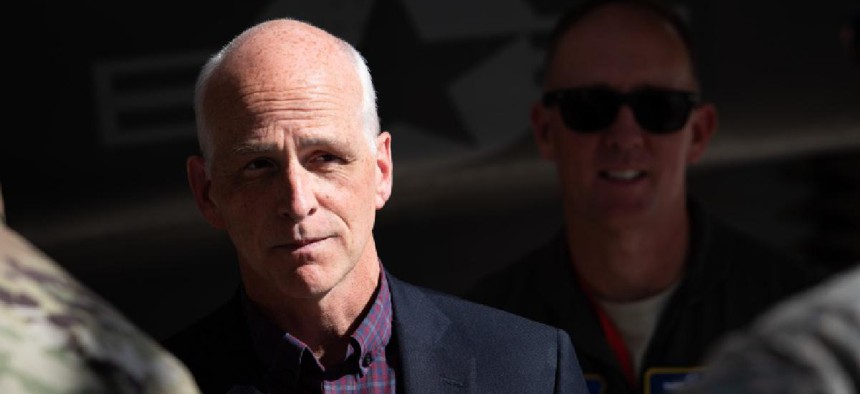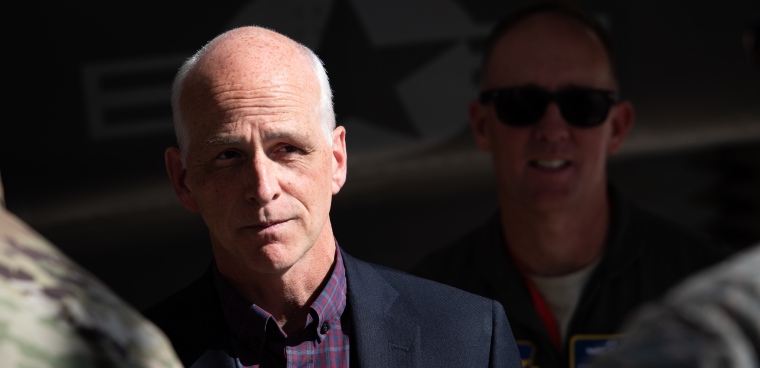HASC chairman: DOD doesn't need more stimulus money

Rep. Adam Smith (D-Wash.), the House Armed Services Committee chairman, said the Defense Department doesn't need any more money from a future coronavirus stimulus bill.

Rep. Adam Smith (D-Wash.), the House Armed Services Committee chairman, told reporters DOD didn't need funds in a future stimulus package, during an April 29 Defense Writers Group virtual event.
"We're going to have to spend a lot of money on this," Smith said about responding to the pandemic. "Good news: we have a lot of money. The defense bill last year was $738 billion plus we had a few odd billion for emergency construction."
Smith said that DOD has needs that require funding but the organization should spend the money it already has to meet them.
"I'm not saying there aren't needs in the Department of Defense to spend money, there absolutely are. I'm saying that the Department of Defense has a lot of money and they ought to spend that money to meet those needs," the chairman said.
"There are clear needs in this country that are greater than the need to expand spending at DOD," naming infrastructure as an example. For Smith, that challenge means spending should be reevaluated and not automatically result in increased funds -- be it for DOD or other sectors.
"We need to do more, obviously, to make sure we are prepared for pandemics and public health crises," Smith said. "Both for DOD and for health care, we need to get more for the money that we're already spending."
Smith wouldn't speculate on the future trend line for defense budgets, which were projected to be flat before the pandemic. However, the chairman did say employing budget caps would likely not be the answer.
"I think there's going to be considerable skepticism that a Budget Control Act-like approach is the right approach to any sort of fiscal policy" simply because "it didn't control the budget particularly well, led to several government shutdowns, a number of continuing resolutions, and more threatened government shutdowns."
But the budget, and where money is coming from, does eventually have to be addressed.
"The budget is at some point a zero sum game," Smith said, adding that conversations about where the money comes from need to be had.
The Congressional Budget Office recently forecast that due to COVID-19 relief, budget deficits will hit $3.7 trillion by the end of the fiscal year and the national debt will surpass the gross domestic product.
"This could, in the long run, put more pressure on the defense budget," Todd Harrison, who analyzes defense budgets at the Center for Strategic and International Studies, said at an April 27 event.
With rescue funding and fiscal stimulus headed north of $3 trillion, Harrison said, ballooning deficits will likely increase pressure from Congress by fiscal 2022 to "reduce the deficit and reduce government spending."
Funding challenges could also arise for DOD in the current, however, if defense contractors have to work overtime to do the work they couldn't accomplish, but were paid to do under a provision in the Coronavirus Aid, Relief, and Economic Security Act that allowed payments to flow to idled contractors.
"The work contractors were supposed to be doing still needs to be done. And so that could very well lead to cost overruns in programs down the road," Harrison said. "So where's the money going to come from to reimburse these programs?"



